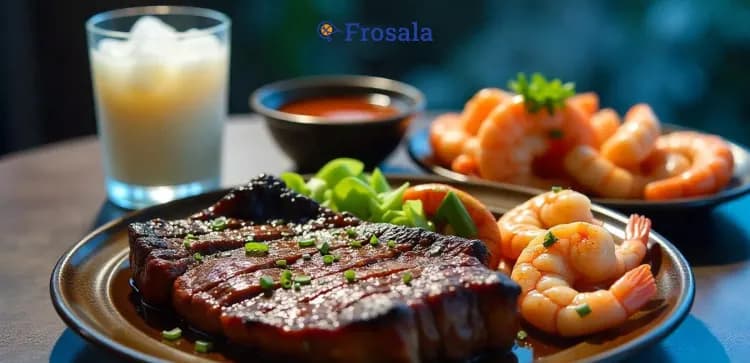Shrimp is a type of seafood with many health benefits. The nutritional content of shrimp makes it an excellent option for complementary baby food (MPASI). The benefits of shrimp as a complementary food include supporting brain function, promoting bone and teeth growth, and enhancing eye health. What are the full benefits of shrimp and what should be considered when using shrimp as part of babies' complementary food? Learn more in this article!
Benefits of Shrimp as Baby’s Complementary Food
1. Supporting brain function
Shrimp is rich in omega-3 fatty acids, especially DHA (docosahexaenoic acid) and EPA (eicosapentaenoic acid). These omega-3 fatty acids play a critical role in the development of babies' brain, contributing to the process of gaining learning and thinking abilities. Additionally, omega-3 supports overall nervous system function.
2. Promoting bone and teeth growth
Shrimp contains vitamin D and minerals such as calcium and phosphorus, which are vital for bone and teeth development. Including shrimp as a complementary food ensures strong bone and teeth growth from an early age. Vitamin D also helps babies to achieve proper bone mass, preventing rickets.
3. Enhancing eye health
As babies begin crawling, maintaining their eye health is crucial and can be stimulated by exposing them to brightly colored objects. As a complementary food, shrimp also supports eye health thanks to its DHA, selenium, and vitamin E content. The astaxanthin pigment in shrimp can also help prevent damage to the eyes due to UV rays.
4. Strengthening the immune system
Shrimp contains zinc, which plays an important role in the development and activation of white blood cells to fight infections. Additionally, the omega-3 fatty acids in shrimp help reduce inflammation, promoting a stronger immune response.
5. Aiding the formation of body tissues
Shrimp is an excellent source of protein for a baby’s development. In 85 grams of shrimp, there are about 12 grams of protein. This protein is essential for tissue and muscle formation, helping to prevent stunting.
6. Nourishing hair
Want your baby to have thick and strong hair? Including shrimp as a complementary food can contribute to healthy hair growth! Shrimp contains zinc, vitamin B, and vitamin D, all of which promote hair strength and prevent breakage.
7. Preventing anemia
Shrimp is a good source of iron and vitamin B12, essential for energy metabolism and preventing anemia in babies. Combining shrimp with vitamin C-rich foods like sweet potatoes, papaya, or broccoli in babies' complementary food can enhance iron absorption.
8. Increasing appetite
Shrimp also helps increase babies’ appetite. When being introduced to solid foods, some babies may refuse to eat by closing their mouth. The high protein content in shrimp can stimulate the release of hormones that boost their appetite, helping them eat more and fulfill their nutritional requirements.
9. Maintaining heart health
Ensuring heart health from an early age is important for preventing cardiovascular diseases later in life. The omega-3 and omega-6 fatty acids in shrimp help maintain heart health and blood circulation. Additionally, the selenium content in shrimp protects the heart from oxidative damage caused by free radicals.
10. Helping with the introduction of solid foods
Lastly, shrimp helps babies transition to solid food. The distinct taste and texture of shrimp introduce babies to a wider variety of foods, encouraging a healthy appetite and helping them get used to consuming solid foods.
Conclusion
Shrimp has various health benefits, making it a great ingredient to be used in babies’ complementary food. Here are some of the health benefits of shrimp as a complementary food:
- Supporting brain function
- Promoting bone and teeth growth
- Enhancing eye health
- Strengthening the immune system
- Aiding the formation of body tissues
- Nourishing hair
- Preventing anemia
- Increasing appetite
- Maintaining heart health
- Helping with the introduction of solid foods
When introducing shrimp to babies, include an appropriate portion size and texture which matches the baby's age and chewing ability. Be mindful of any signs of allergic reactions, such as rashes or itching. It is important to combine shrimp with other ingredients such as rice, corn, carrots, and pumpkin to ensure a well-balanced diet.
Order the finest quality shrimp to be prepared as complementary food and enjoyed by the whole family from Frosala. Our shrimp are harvested from professional farms and processed in HACCP Grade A and Halal-certified facilities, ensuring their quality and safety all the way to your plate. What are you waiting for? Fulfill your whole family’s nutritional needs today by ordering Frosala's high quality shrimp!



